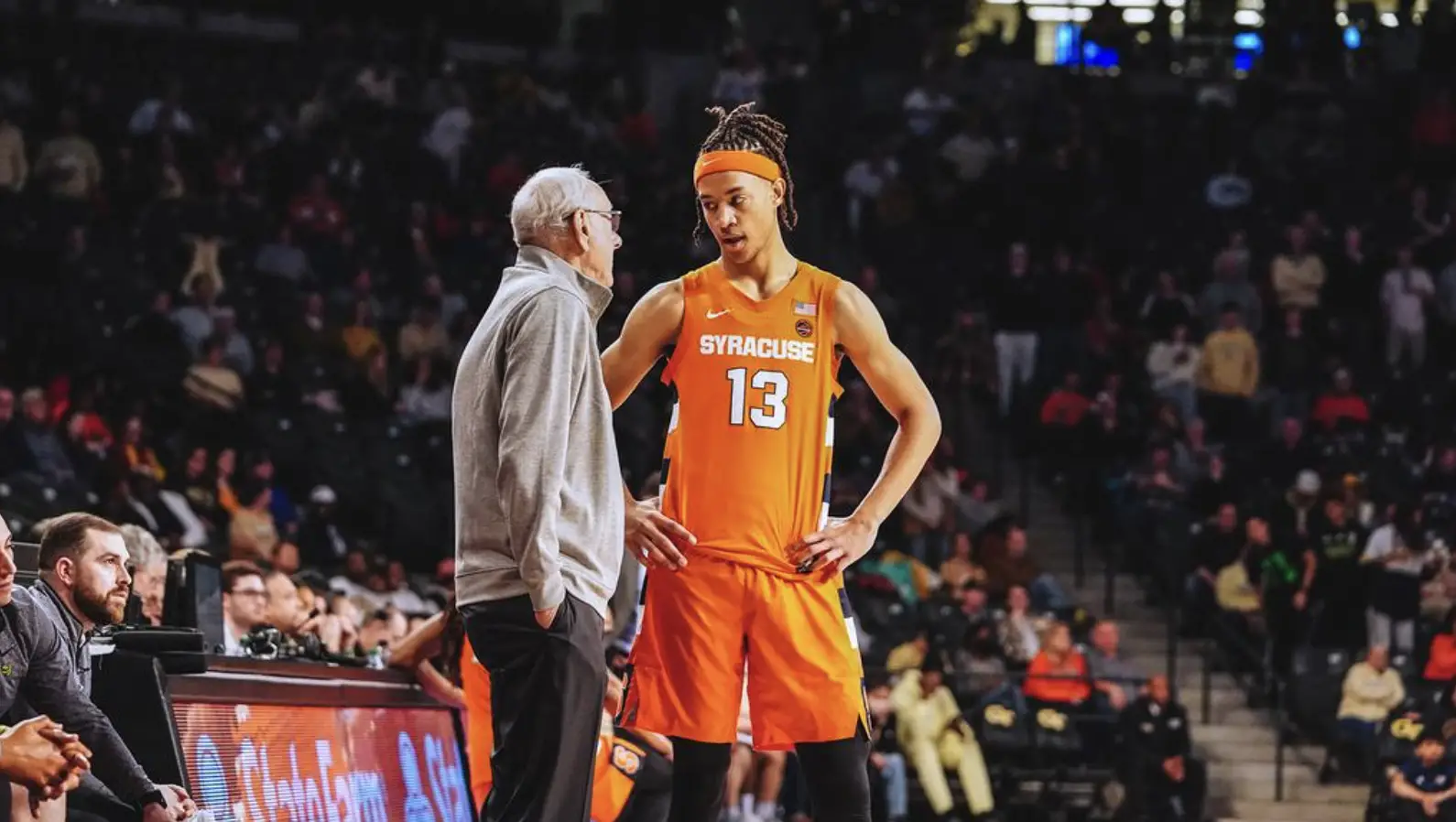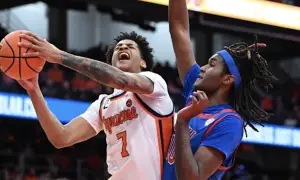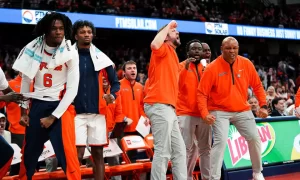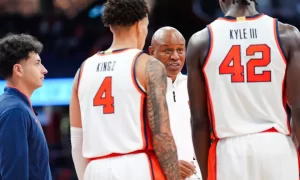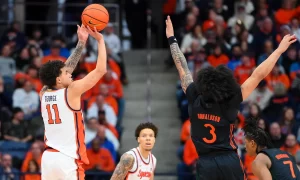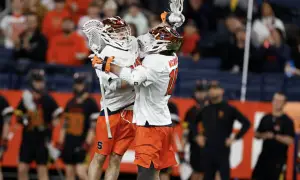Michael Lewis’ Moneyball tells the story of a superior athlete doomed by lacking confidence, and Syracuse men’s basketball forward Benny Williams is suffering through a similar problem. Billy Beane, a former top baseball prospect turned Oakland Athletics executive, was that chronicled superior athlete back in the mid-1980s. Beane’s lacking skills as a player in the minors and brief Major League career are well-known, but the descriptions of his mental struggles are revealing. When Beane interacted with fellow minor league teammate and future MLB All-Star Lenny Dykstra, he saw someone in a far different mental space.
“Mentally, Lenny was superior…[he] didn’t let his mind screw him up…He had no concept of failure…And I [Beane] was the opposite.” (Moneyball, p. 35)
Dykstra accelerated through the minors and played 12 Major League seasons. Beane became a player who feared failure, lacked trust in his abilities, and thought of the batter’s box as “a cage designed to crush his spirit” (Moneyball, p. 39). Failure trapped Beane in a mental prison. Though it’s hard to tell without knowing Williams, it appears he’s going through the same thing.
At this point, the star-crossed Williams probably doesn’t know what to do. The prized Class of 2021 recruit is nearly two years into his SU career and probably has less than he expected to show for it. These days, it looks like Williams is waiting his turn on a team that feels like it’s leaving him behind.
We’re 20 games into ‘Cuse men’s hoops’ season, and Williams is a second-year starter – but an increasingly unhappy one. His up-and-down season reached a nadir in yesterday’s 80-63 victory over Georgia Tech that saw him miss three shots, leave with 12:53 remaining in the first half, and never return. Williams then watched from the bench as his replacement (freshman forward Maliq Brown) set a new career-high with 18 points in 32 minutes.
Despite his best efforts, Williams has now been uprooted from his role at forward by two freshmen who each play parts of his game better than he can. Chris Bell hasn’t had an outstanding first year, but strong play in January and a velvet-slick shooting stroke keep him in the lineup. In the meantime, Brown has emerged as a dynamic rebounder and steady presence in the paint. Williams cannot provide the offense Bell does, nor does he rebound as well as Brown. Benny’s minutes have crept downward as a result.
In a way, Jim Boeheim is right. It’s time for Williams to sit, but not because of his statistics or how well he’s following directions. Williams shouldn’t start because it’s the right thing to do for all parties. It’s simply not fair to Williams to keep thrusting him out onto the floor to fail, only to complain about him afterward, especially not on a team now enduring tournament whispers and the added scrutiny.
The statistical argument to hold Williams off the court is straightforward. SU has played 20 of its 31 regular season games and completed 64 percent of its schedule. Williams has started every one of those games, non-conference and all, to figure things out, and he still hasn’t. Athletes in other sports don’t get the chance to scuffle for 64 percent of their schedules. If a baseball player hits under .200 and languishes on defense for 103 games, they’re either released or sent down to the minors. If a smaller-sample NFL player made the same type of mistakes and resisted instruction for 11 games of their 17-game season, they too would be relegated to the bench. Williams’ talent isn’t the problem. His troubles are owed to stubbornness, a naturally bad fit, or some combination of mental factors.
Then again, it’s impossible for Williams to succeed when he can’t please Boeheim. At first, Boeheim wanted Williams to be an offensive weapon “we need.” Williams then committed the cardinal sin of taking too many shots, and Boeheim publicly griped that he wanted Williams to focus on rebounding. After hauling down three boards in eight minutes yesterday, Williams got benched anyway. It’s one thing to sit Williams if he wasn’t trying, but he’s playing hard and is, according to Boeheim, the team’s best player in practice. If that’s the case, Benny doesn’t deserve to have his confidence shattered every game by an arbitrary hook. It would be less embarrassing for everyone involved to take pressure off Williams’ plate, bring him into games with the second rotation, and stop making him try to futilely scrap for 10 minutes a night.
Williams still has his starting spot, but the damage has been done. He plays like he’s desperately low on confidence, and that manifests itself in aggression toward opponents or even his own jersey. Williams’ tale and Beane’s story from Moneyball are alike in that sense. Both players have had their confidence diminished as their careers have gone on and suffered in the field of play. Beane couldn’t salvage his career even after changes of scenery, but the transfer portal affords Williams that opportunity. Though it isn’t heavily rumored that Williams will leave, it’s hard to believe he isn’t a likely transfer candidate. After watching what he goes through, you shouldn’t blame him if he departs.


